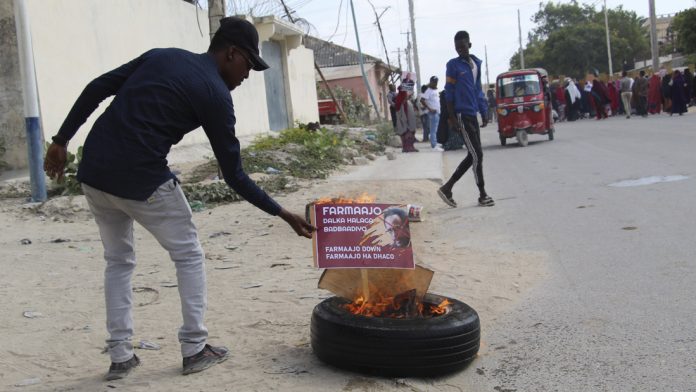The country, one of the most sttavle democracies the region, celebrates three decades of self-proclaimed independence
The news had the potential to sneak into half the world’s newscasts. A male lion, owned by a former Interior Minister, had escaped from his cage and, after wandering the streets of the capital, had attacked a woman. Shortly after, the police shot the animal. The news happened just three weeks ago and was forgotten because it happened in a blind spot in the world. In a non-place: Somaliland.
Twice the size of Catalonia, this region in northwestern Somalia celebrates 30 years of self-proclaimed independence since its leaders announced the unilateral split with Somalia on May 18, 1991. Since then, both territories have taken opposite paths. While Somalia lives in misrule, plagued by jihadist violence and the threat of civil war, Somaliland is a territory with its own Constitution and army, a stable government and with its own currency, flag and anthem.
It is a country that works: despite being officially recognized only by Taiwan, it has a humble but acceptable infrastructure network, a buoyant capital –Hargeisa– and is one of the best democracies in the Horn of Africa.
The Minister of Industry and Tourism, Mohamud Hasan Sa’ad, receives this newspaper in his office and puffs out his chest. “If you look around, southern Somalia is battered by violence; in Djibouti, its leader has just won the elections with more than 97% of the votes; Eritrea is not free; Ethiopia and South Sudan suffer wars… We are the most democratic, and even then they don’t recognize us. Nobody has brought us peace, we have built it. I know it will take time for them to recognize us, but the important thing is that we recognize each other, and the reality is that we live happily and in peace.»
For Hasan, the main stumbling block for Somaliland to be accepted is fear. Beyond the fact that Somalia is not for the job, the African Union and the international community want to avoid a precedent that would redraw the borders and send a dangerous message to peoples with similar demands. The failure of the last two changes to the map – the separation of Eritrea and Ethiopia in 1993, and the independence of South Sudan in 2011 – and the risk of balkanization in a Somalia with influential clans, as well as a well-stocked arsenal in backyard, keep Somaliland in limbo.
For Somali analyst Hasan Kenyan, one argument keeps local desires alive: «Somaliland existed briefly as a country, just five days, but it could be key.» Territories of distinct colonial roots (the northwest was a British protectorate while the south was Italian territory), upon proclaiming independence in 1960, Somaliland existed as an internationally recognized country for less than a week until it decided voluntarily, and fearful of the annexationist desires of the neighboring Ethiopia, joining to the south to form greater Somalia. “The Somaliland leaders soon realized their mistake,” says Kenyan, “because the southern clans seized power; Now they want a divorce.» The Somaliland resistance to independence, harshly repressed by the dictator Siad Barré, claimed victory in 1991 when the Berlin Wall fell and the Somali satrap lost his international support.
Since then, Somaliland has been a story of reconstruction. With an ailing economy – the camel trade to Arab countries, the port of Berbera and remittances from the diaspora are its economic strongholds, but the country has no banks and cannot receive direct aid – Somaliland has relied on traditional structures strong to progress. It is explained by history: in addition to the fact that in the north the Isaaq clan is the majority, which facilitates stability, the little case of the British to their Somali territory, which they considered secondary to their possessions in Arabia, allowed the survival of traditional authority, unlike in the south, where the Italians undermined the influence of the elders and the country fell apart when war broke out.
For Sucaad Armiyen Odowa, despite the progress, there is still work to be done, especially in the social position of women. «The tribal system discriminates against women, because those who elect the representatives are the elders or council of wise men, who have a conservative mentality.» For Armiyen, the future is hope: 70% of the population is under 30 years of age and has always lived in an «independent» Somaliland.



